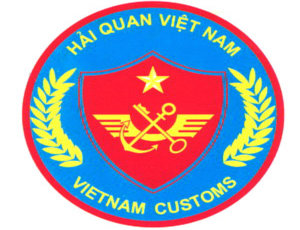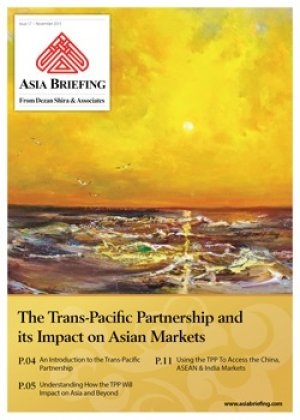Leveraging Vietnamese Customs to Block Counterfeit Exports
 By the South-East Asia IPR SME Helpdesk
By the South-East Asia IPR SME Helpdesk
Vietnam now operates a diverse, modernized economic structure, with manufacturing, information technology, and high-tech industries forming a large, fast-growing part of its national economy. It is also the third-largest oil producer in south-east Asia.
Vietnam’s key exports to the EU include footwear, textiles and clothing, coffee, rice, seafood, and furniture, totaling approximately EUR 22 billion each year. EU exports to Vietnam primarily consist of high tech products such as electrical machinery and equipment, aircraft, vehicles, and pharmaceutical products, totaling approximately EUR 5.8 billion annually. Vietnam and the EU launched negotiations on a Free trade Agreement (FTA) in 2012 which are ongoing.
Vietnam has made a concerted effort to bring its national legislation into line with international IPR standards in recent years. Accession to the World Trade Organization (WTO) in 2007, and its compliance with the Agreement on Trade-Related Aspects of Intellectual Property Rights (TRIPS), signified a marked improvement to IP protection in the country.
Vietnam is also a member of the following international conventions regulating IP matters:
- The Paris Convention for the Protection of Industrial Property
- The Madrid Agreement concerning the international Registration of Marks
- Protocol Relating to the Madrid Agreement Concerning the International Registration of Marks
- Rome Convention for the Protection of Performers, Producers of Phonograms and Broadcasting Organizations
- The Patent Cooperation Treaty
- International Convention for the Protection of New Varieties of Plants
- Agreement on Trade-Related Aspects of Intellectual Property Rights
- The Berne Convention for the Protection of Literary and Artistic Works
As a result, Vietnam’s IP legislation is now considered to be relatively comprehensive, covering most aspects of protection of IP in accordance with international standards. Enforcement mechanisms are still relatively underdeveloped however and much work remains to be done to strengthen deterrent measures and raise awareness amongst Vietnamese consumers.
Customs in Vietnam
Vietnamese customs laws prohibit the import of goods which infringe IP rights registered within Vietnam. To this end, customs authorities have the power to impose fines and confiscate infringing goods which have been stopped at the border. Customs authorities can also arrange for criminal proceedings to be brought against infringers for cases involving copyright or trade mark infringement. So far these powers extend only to imports and as such, customs authorities have no power to check and hold infringing products being exported (as in China for example).
Using customs controls to block counterfeits
Registration with customs authorities in Vietnam is not a mandatory requirement, however it is often advisable to add yourself to their database as doing so will enable customs officers to recognize counterfeit versions of your products, and improve the chances of suspect shipments being stopped at the border. Furthermore, if shipments are known to be en-route, rights holders can work with customs to ensure they are detained before being released onto the market (this would of course entail significant investigative work on the rights holders behalf however).
In theory, all IPRs can be registered with the Vietnamese customs authority, in practice however, only trade marks, geographical indications, and copyrights and related rights are picked up. This is perhaps due to the relative inexperience of customs officials with more complex forms of IP such as invention patents and industrial designs.
In order to register with customs, a customs recordal must be filed with the General Department of Customs in Vietnamese, containing the following documents:
- Certified copies of your IP certificates of registration, e.g. a trade mark registration certificate
- Documents relevant to the goods you wish to register with customs, including; a list of authorised importers/exporters, mode of import/export of genuine goods, descriptions of how to distinguish genuine goods from infringing copies, documents on the origin of genuine goods, and pictures of genuine goods.
- A notarised and legalised power of attorney, where the application is filed by a local IP agent
- Any supporting documents, e.g. information on estimated times and location of import and export, expert opinions on known infringing goods, any sanctioning decisions made by enforcement agencies in previous cases of infringement of the goods you are registering, where applicable.
Confirmation is usually given by the customs office within 20 days of application.
Once registered, IPRs remain in the database for one year, extendable for a further year upon request. After this 2 year period the rights must be filed anew to continue monitoring operations.
For more information on customs control and IP enforcement in Vietnam be sure to read our Vietnam IP Country Factsheet or get in touch with our experts for free, tailored advice.
|
The South-East Asia IPR SME Helpdesk, co-funded by the European Commission’s Directorate-General for Enterprise and Industry under the Competitiveness and Innovation Framework Programme, supports European Union (EU) small and medium sized enterprises (SMEs) to both protect and enforce their Intellectual Property (IP) rights in or relating to South-East Asia, through the provision of free information and services. These take the form of jargon-free, first-line, confidential advice on intellectual property and related issues, plus training, materials and online resources.
|
Annual Audit and Compliance in ASEAN
For the first issue of our ASEAN Briefing Magazine, we look at the different audit and compliance regulations of five of the main economies in ASEAN. We firstly focus on the accounting standards, filing processes, and requirements for Indonesia, Malaysia, Thailand and the Philippines. We then provide similar information on Singapore, and offer a closer examination of the city-state’s generous audit exemptions for small-and-medium sized enterprises.
 The Trans-Pacific Partnership and its Impact on Asian Markets
The Trans-Pacific Partnership and its Impact on Asian Markets
The United States backed Trans-Pacific Partnership Agreement (TPP) includes six Asian economies – Australia, Brunei, Japan, Malaysia, Singapore and Vietnam, while Indonesia has expressed a keen willingness to join. However, the agreement’s potential impact will affect many others, not least of all China. In this issue of Asia Briefing magazine, we examine where the TPP agreement stands right now, look at the potential impact of the participating nations, as well as examine how it will affect Asian economies that have not been included.
 An Introduction to Tax Treaties Throughout Asia
An Introduction to Tax Treaties Throughout Asia
In this issue of Asia Briefing Magazine, we take a look at the various types of trade and tax treaties that exist between Asian nations. These include bilateral investment treaties, double tax treaties and free trade agreements – all of which directly affect businesses operating in Asia.
- Previous Article Key takeaways from Obama’s Vietnam Visit
- Next Article Layoff Violations Under Vietnam’s Updated Criminal Code









